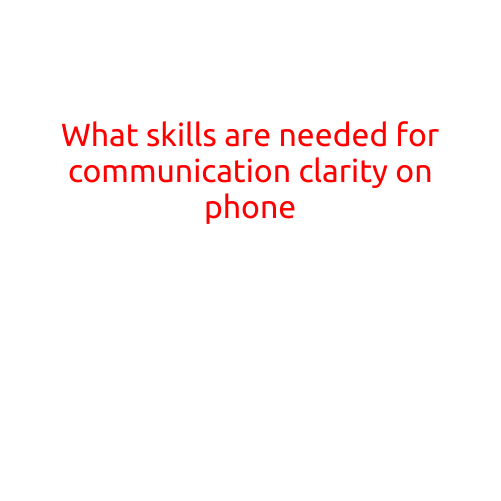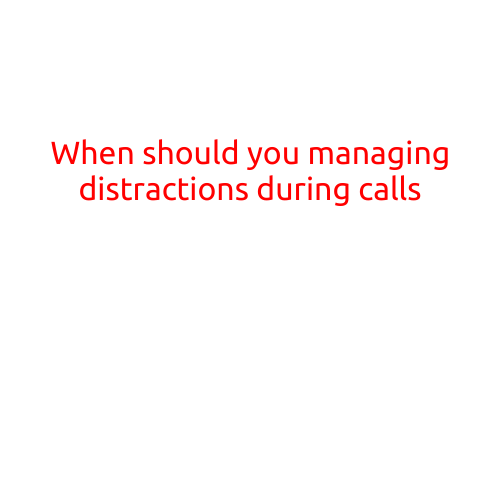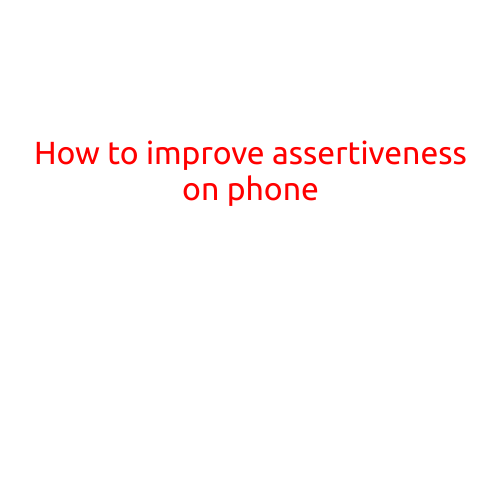
What Skills are Needed for Communication Clarity on Phone?
Effective communication is crucial in any business or personal setting. The rise of mobile technology has made phone calls an essential means of communication, but it requires specific skills to ensure clarity and understanding. In this article, we will explore the essential skills needed for communication clarity on phone.
1. Clear Enunciation
Good enunciation is the foundation of clear communication. Speak clearly and loudly enough to be heard, but not so loudly that others are uncomfortable. Enunciate each word, avoid mumbling or speaking too quickly, and pause occasionally to allow the listener to process the information.
2. Confident Tone
A confident tone conveys authority and builds trust. Speak with a strong, natural tone, avoiding a hesitant or nervous cadence. Use a pitch that is comfortable for the listener, neither too high nor too low.
3. Active Listening
Active listening is just as important as speaking clearly. Pay attention to the person speaking and confirm understanding through verbal and non-verbal cues. Repeat back what you’ve heard to ensure you’re on the same page.
4. Clarity of Language
Use simple, concise language to convey your message. Avoid jargon, technical terms, or complex sentences that might confuse others. Use everyday language and examples to explain complex ideas.
5. Pausing and Pacing
Pause occasionally to allow the listener to process the information. This helps prevent overwhelming the listener with too much information at once. Vary your pace to add emphasis or create a sense of drama.
6. Paraphrasing and Summarizing
Paraphrase and summarize the conversation to ensure understanding and to help the listener recall important points. This also encourages the listener to do the same, fostering a collaborative communication environment.
7. Non-Verbal Cues
Non-verbal cues like body language and facial expressions play a significant role in phone communication. Smile, sit up straight, and make eye contact (even if you’re not in the same room). Avoid fidgeting or crossing arms, which can convey defensiveness.
8. Preparation and Organization
Before a phone call, prepare by gathering necessary information, researching the topic, and creating an agenda. Organize your thoughts, and prioritize the discussion. This helps you stay focused, reduces the risk of forgetting important points, and ensures a productive conversation.
9. Flexibility and Adaptability
Phone communication can be unpredictable, with interruptions, poor connection, or unexpected turns of conversation. Stay flexible and adapt to changing circumstances, remaining patient and composed.
10. Technology Savvy
In today’s digital age, technology literacy is essential. Familiarize yourself with phone settings, conference calls, and digital meeting tools to avoid technical issues and minimize distractions.
Conclusion
Effective communication on the phone requires a combination of technical, interpersonal, and organizational skills. By incorporating these skills into your phone communication practices, you’ll become a more confident, clear, and effective communicator, leading to better relationships, increased productivity, and improved outcomes.
Remember, practice makes perfect. Regular phone calls can help you develop these skills, leading to more effective and engaging conversations.





